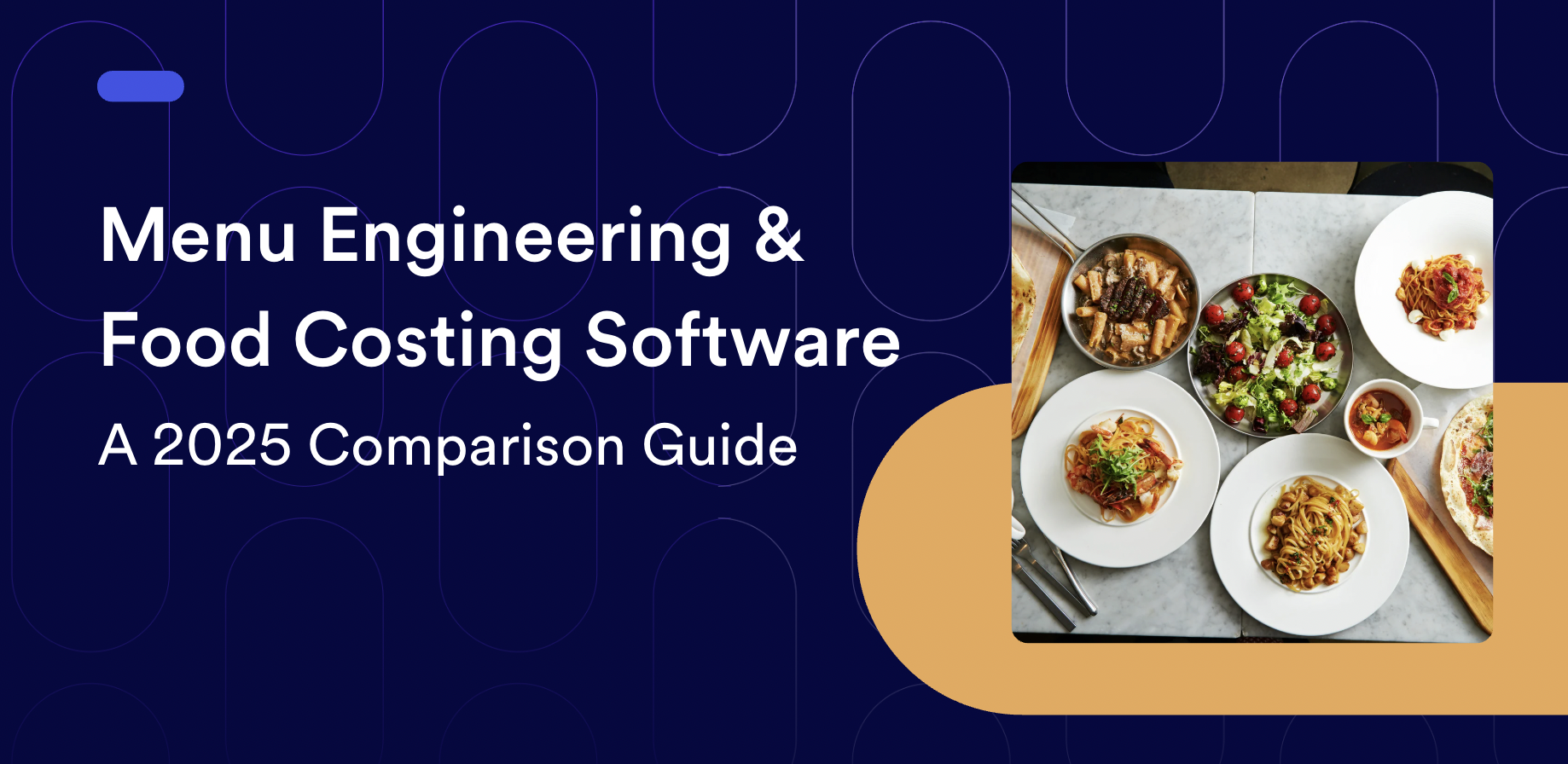Effective staff training is the cornerstone of a successful restaurant. It not only ensures consistent dish quality and exceptional customer satisfaction but also plays a critical role in employee retention and morale.
Investing in comprehensive training programs is essential for creating a cohesive and skilled team, which ultimately leads to a more efficient and harmonious work environment. However, the true value of effective training becomes even more evident when considering the high cost of staff turnover.
The High Cost of Staff Turnover
Staff turnover is a significant challenge in the restaurant industry, bringing with it a myriad of costs that extend far beyond the immediate expenses of hiring new employees. Here’s a closer look at why staff turnover can be so costly:
- Labor Shortages and Rising Costs: The current labor market is facing severe shortages, making it harder and more expensive to find and retain qualified staff. As competition for talent grows, replacing lost employees becomes increasingly costly, raising the labor cost percentage in your overall restaurant expenses.
- Training New Employees: Training new hires is a resource-intensive process. It often requires experienced staff to take time away from their regular duties to provide training, which effectively doubles the cost. This not only strains the existing workforce but also disrupts kitchen operations, leading to inefficiencies and potential declines in service quality.
- Loss of Institutional Knowledge: Seasoned employees possess valuable institutional knowledge that takes time and experience to acquire. When these employees leave, they take their expertise with them, resulting in a loss of consistency in dish preparation and overall kitchen efficiency. This knowledge gap can be difficult and costly to fill.
- Dish Inconsistency: Consistency is critical in the restaurant business. Variations in food quality caused by new or inadequately trained staff can harm customer satisfaction, potentially reducing repeat business. This impacts your food cost percentage by lowering revenue and profitability.
Key Restaurant Staff Training Topics
The way your team interacts with customers, collaborates with each other, manages compliance, maintains food safety, and responds to feedback significantly impacts your restaurant’s overall performance. Proper training for restaurant staff, covering essential restaurant staff training topics, ensures your team is well-prepared to handle the unique challenges of the industry, ultimately enhancing your restaurant’s service quality and profitability.
1. Customer Engagement and Interactions
Customer interaction is the cornerstone of the hospitality industry. Your staff's ability to engage with guests, handle their concerns, and provide a memorable dining experience can be the deciding factor between a one-time visit and a loyal customer. Good customer interaction goes beyond basic politeness; it’s about creating a welcoming environment where guests feel valued and appreciated. This is a crucial aspect of restaurant service training that can significantly influence guest satisfaction.
Effective customer interaction fosters repeat business and positive word-of-mouth. A well-trained team can turn first-time visitors into loyal customers, enhancing customer retention and boosting revenue. Comprehensive training for restaurant staff in this area can elevate the overall guest experience.
2. Teamwork and Collaboration
A restaurant is a fast-paced environment where teamwork is not just beneficial but necessary. The seamless coordination between the front and back of house, clear communication, and mutual support are vital for smooth operations, especially during peak hours. This underscores the need for focused restaurant employee training that emphasizes collaboration and mutual respect.
Strong teamwork reduces errors, improves service speed, and enhances the overall dining experience. It leads to a more harmonious work environment, reducing staff turnover and increasing job satisfaction. Investing in training restaurant staff to collaborate effectively can result in a more cohesive and efficient team.
3. Increasing Revenue with Upselling
Upselling is more than just a sales tactic; it’s a way to enhance the guest experience by recommending items they might enjoy. When done correctly, upselling can increase check averages without coming across as pushy or insincere. Incorporating upselling techniques into your training for restaurant staff can lead to a more personalized dining experience for guests.
Effective upselling can significantly boost your revenue while enhancing the guest experience. Restaurant service training in this area ensures that guests are guided toward the best possible dining choices for their preferences, increasing overall satisfaction.
4. Navigating Legal and Ethical Requirements
Compliance management ensures that your restaurant adheres to all legal and regulatory requirements, from health and safety standards to labor laws. Non-compliance can result in fines, lawsuits, or even the closure of your business. Therefore, training restaurant staff on legal and ethical standards is essential for the smooth operation of your establishment.
A well-trained staff in compliance management reduces the risk of legal issues and fosters a trustworthy reputation. This not only protects your business from financial and legal repercussions but also builds trust with customers and the community.
5. Food Safety and Hygiene: Protecting Health and Reputation
Food safety and hygiene are non-negotiable in the restaurant industry. Improper handling of food can lead to contamination, illness, and severe reputational damage. Training restaurant staff in these areas is critical to safeguarding the health of both customers and employees.
A reputation for cleanliness and safety can set your restaurant apart in a competitive market. Conversely, a single incident of foodborne illness can have devastating consequences, including loss of customers, legal action, and permanent damage to your brand.
6. Performance Assessment: Continuous Improvement
Feedback and performance assessments are essential for personal and professional growth. Regular feedback helps staff understand their strengths and areas for improvement, fostering a culture of continuous learning and development. Structured training for restaurant staff should include performance assessment techniques to ensure ongoing development.
A structured feedback process helps in retaining top talent and maintaining high service standards. Employees who feel valued and understand their contribution to the business are more likely to be engaged, motivated, and committed to their roles.
4 Expert Tips for Enhancing Restaurant Staff Training
Here are 4 tips for streamlining and optimizing restaurant staff training to empower your team and enhance operational efficiency.
Train Staff in Less than 2 Weeks
According to a recent report by 7shifts, the preferred length of training time for new employees is typically between one and two weeks, with 46.6% of respondents favoring this duration. Some prefer even shorter training periods, with 38% opting for less than a week.
However, employees generally do not want their training period to exceed two weeks. Providing easy access to information can significantly reduce training time by allowing new hires to learn at their own pace and reference materials as needed.
For our staging program, I ask for five days of the chef's time, and they are 100 percent integrated into our team. They will be given prep lists. They'll be working with myself, my sous chef, going through all the prep, getting ready for service. They will be in every single piece of service, serving our guests, talking with our guests. My hope is that that both guests and chef will learn more about themselves as a cook or a diner, but then also how to improve their process and their cooking and they can bring it back to their own establishments with new ideas.

Evan Hennessey
Chef/Owner of Stages at One Washington & The Living Room
Focus on Mentorship
Employees appreciate learning through human interaction in addition to having digital resources. In 7shifts study, 70% of employees prefer hands-on training programs from managers, and 44.5% favor shadowing senior employees.
This preference highlights the effectiveness of mentorship alongside other training methods.
In-person mentorship allows for more targeted skill development and quicker resolution of specific challenges that a staff member might face. Experienced mentors share their practical knowledge and insights, which can be more valuable than theoretical training.
Plus, they can offer support and encouragement, helping mentees build confidence in their new roles. This support can reduce turnover rates and foster a more positive work environment.
"You need to create visible upward mobility so people can see, okay, if I stay here, I put the time in, I'm going to be rewarded. Many groups are now giving equity because what's better than that? You have ownership. You feel like you're a part of something. You're no longer simply a pawn in the game. You feel like you can put down roots somewhere and grow."

Eli Kulp
Culinary Director, High Street Hospitality Group
Prioritize Open Communication
Employees demand to be recognized for their work. According to 7Shifts, 64.3% of employees say that more recognition from management would increase their engagement, maintain team spirit, and increase morale.
Effective communication minimizes misunderstandings and errors. When training instructions and expectations are communicated clearly, there is less room for confusion. This leads to a smoother training process and quicker competency for new staff members.
Streamlined communication also helps in regularly updating staff about new procedures, updated recipes, menu changes, or service standards, ensuring continuous learning and development.
“The first thing I said to my staff when opening One Fifth was, ‘I'm going to respect you guys, and you guys are going to respect us, and we're going to care about each other, and it's a family.’ And I know it sounds cliche because every corporate meeting you ever go to you'll hear the same thing. But after like a couple weeks or a month, one by one, people will just come up to me and just be like, you know, a lot of people say it, but they don't really do it. I've never worked anywhere where people actually have each other's back instead of sabotaging.”

Marc Forgione
Owner of Respect Hospitality Group
Encourage Team Camaraderie
A strong sense of camaraderie can lead to higher employee retention rates, as staff who feel connected to their team are less likely to leave. Notably, 60.8 percent of Gen Z restaurant workers rank their coworkers among the top motivators of daily work.
Team stability benefits training by ensuring that experienced staff are available to mentor and support new employees, maintaining continuity and consistency in training programs.
Additionally, teams with good camaraderie are more effective at problem-solving. Effective training, supported by strong team bonds, ensures that all staff adhere to the same standards and procedures, leading to consistent service and food quality. This uniformity in dish execution enhances customer satisfaction and upholds the restaurant's reputation.
"FieldTrip is about people being able to grow in their communities. Yes, it's a rice bowl shop, but it's really about empowering people like Shay who lived in, you know, a place that wasn't safe for her to live, that she was able to grow and get her own apartment, or it's about Kima who's trying to start her own hot sauce company."
.webp)
JJ Johnson
Chef/Founder of FieldTrip
Enhancing Employee Happiness and Retention with meez
In the highly competitive restaurant industry, staff turnover remains a significant challenge, with rates as high as 75% annually. This high turnover not only hampers growth but also affects productivity, quality, and customer satisfaction. Leveraging technology, such as meez’s smart recipe management platform, can create a happier and more efficiently trained workforce.
With meez, you can:
- Create Interactive Materials: By turning recipes into interactive digital formats, including videos and step-by-step guides, meez speeds up the onboarding process.
- Expand Your Hiring Pool: Reducing the prior knowledge required for new hires broadens the potential candidate pool, making it easier to fill positions quickly.
- Scale Recipe Dynamically: meez enables recipes to be scaled accurately to match demand, reducing food waste and ensuring that the right amount of food is prepared every time.
- Keep Recipes Organized: Having a single source of truth for all recipe content ensures everyone is on the same page. Real-time notifications keep the team informed of any changes.
- Have Complete Version Control: Controlling who can edit recipes and managing visibility of work-in-progress recipes to prevent confusion and maintain consistency across all locations.
"meez has played a pivotal role in ensuring recipe uniformity and staff accountability. The ease of use and real-time recipe updates have eliminated errors and have been a significant time saver.”

Heather Terhune
Associate Director of Culinary Operations, Tortazo
Read Case Study







